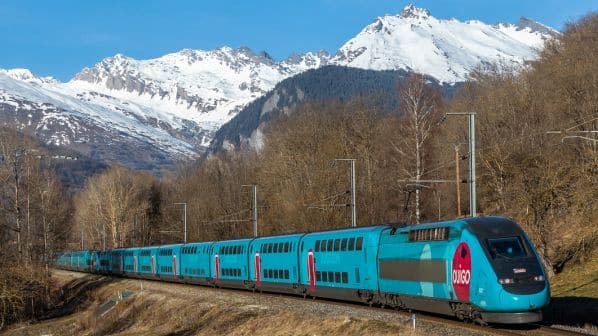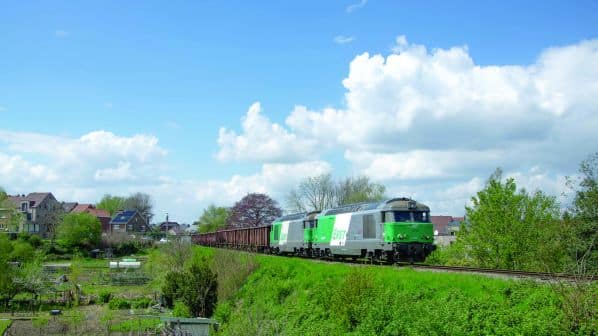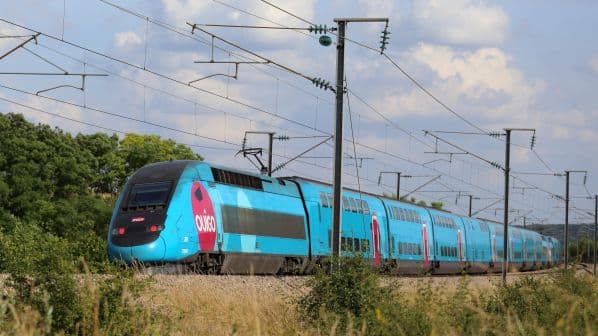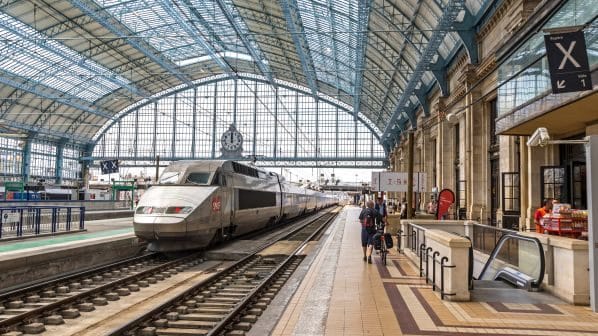FRENCH National Railways (SNCF) has reported a 2.2% year-on-year increase in group turnover for the first half of 2023, reporting revenue of €20.7bn for the six months to June 30 2023. The result was driven by record passenger traffic and is in spite of a difficult economic and labour relations climate.
On a like-for-like basis and at constant exchange rates, turnover was down 0.1% from €20.3bn in the first half of 2022.
SNCF says that a series of strikes held earlier this year in protest at the government’s pension reform programme, which will raise the state pension age from 62 to 64, reduced turnover by €500m and had similar effect on profit.
Group Ebitda in the first half of 2023 was €2.8bn, which would have been €3.2bn had it not been for the impact of the strikes.
The group net result for the first half of this year was €158m, down from €928m in 2022. This included €350m of non-cash accounting provisions for the future impact of wage increases agreed in 2022 and increasing interest rates.
SNCF says that it has been able to absorb most of the impact of inflation on its cost base through a proactive commercial strategy and the implementation of a performance and productivity plan.
A reduction in structural costs, overheads and project costs contributed to significant gains of €390m in the first half of 2023, against a target of €650m for 2023 as a whole.
Turnover at passenger operating business SNCF Voyageurs in the first half of 2023 was up 11.3% at €9.3bn from €8.4bn the year before, with the rise in energy prices partly mitigated by hedging.
Within SNCF Voyageurs, turnover at TGV Intercités was up 19.6% year on year at €4.6bn from €3.8bn the year before. Traffic was 10% up on the first half of 2022 when passenger numbers were still being impacted by the Covid-19 pandemic.
SNCF has limited the average increase in fares for travel on its high-speed TGV services to 5%, despite a 13% increase in cost of operating these commercial services due to inflation and the rise in electricity prices.
The fares strategy will also see minimum ticket prices frozen for both TGV Inoui and low-cost Ouigo services. SNCF says that Ouigo services now account for 20% of its high-speed traffic, with 50% of tickets costing less than €25.
TGV Europe traffic was up 40% year on year in the first half of 2023, due mainly to passenger numbers recovering at both Eurostar and Thalys. Adding the Madrid - Albacete - Alicante route to its network on April 27, Ouigo Spain has carried over 5 million passengers since it was launched in 2021.
Turnover at the TER business operating passenger services under contract to the French regions was up 3% at €2.9bn from €2.8bn in the first half of 2022. Traffic was up 18% year-on-year, with operating contracts retained in Hauts-de-France, Occitanie, Nouvelle-Aquitaine and Pays de la Loire.
Traffic at Transilien, which operates the Paris commuter network, was up 5% in the first half of 2023, with turnover up 4.5% at €1.9bn from €1.8bn the year before. Having signed a two-year contract extension with SNCF Voyageurs at the end of 2022, regional transport authority Île-de-France Mobilités has approved an extension of its Transilien investment programme running until 2025.
Keolis reported turnover of €3.5bn in the first half of 2023, up 7.3% from €3.3bn in 2022. Operating contract wins included lines 16 and 17 of the future Grand Paris Express automated metro network, and a rail contract in the Netherlands worth €150m over 13 years.
Turnover at logistics business Geodis was down 19.7% at €5.9bn from €6.7bn the year before, with all its activities impacted by the drop in freight volumes caused by a worldwide economic slowdown.
Industrial action in France also hit SNCF’s rail freight business Rail Logistics Europe which includes Fret SNCF. Turnover in the first half of 2023 was down 3.6% at €0.8bn from €0.9bn the year before, and SNCF says that its Autoroute Ferroviaire services carrying lorry trailers also had to contend with infrastructure work that required train formations to be shortened or transit times to be extended.
SNCF says that the plan for divesting its freight businesses, as required by the European Commission (EC) following its investigation into illegal state aid, must be implemented in order to preserve most of Fret SNCF's production assets, protect employees and avoid modal shift from rail to road, while complying with the EC's requirements.
Turnover at infrastructure manager SNCF Network was up 2.4% in the first half of 2023 to €3.6bn compared with €3.5bn the year before. On a like-for-like basis and excluding traction electricity charges, turnover was in fact 0.8% down on 2022 due to a 9% drop in traffic caused by industrial action.
At station operating business SNCF Gares & Connections, turnover was up 8.3% at €0.9bn from €0.8bn the year before. Income from passenger operators was up 10% year on year, while income from station retail concessions was boosted by trading that was over 10% up on 2022 despite the impact of rail strikes.
“SNCF Group's consolidated results for the first half of 2023 are good,” says SNCF chairman and CEO, Mr Jean-Pierre Farandou.
“They demonstrate the relevance and robustness of our economic model in a period marked by a deteriorating economic and geopolitical situation, inflation and social unrest linked to national pension reform.
“The French are delighted with the train, and that's good news. This positive underlying trend will continue in 2023 and follows on from last year's historic figures. We are 10% ahead in long-distance tickets sales for this summer.”




